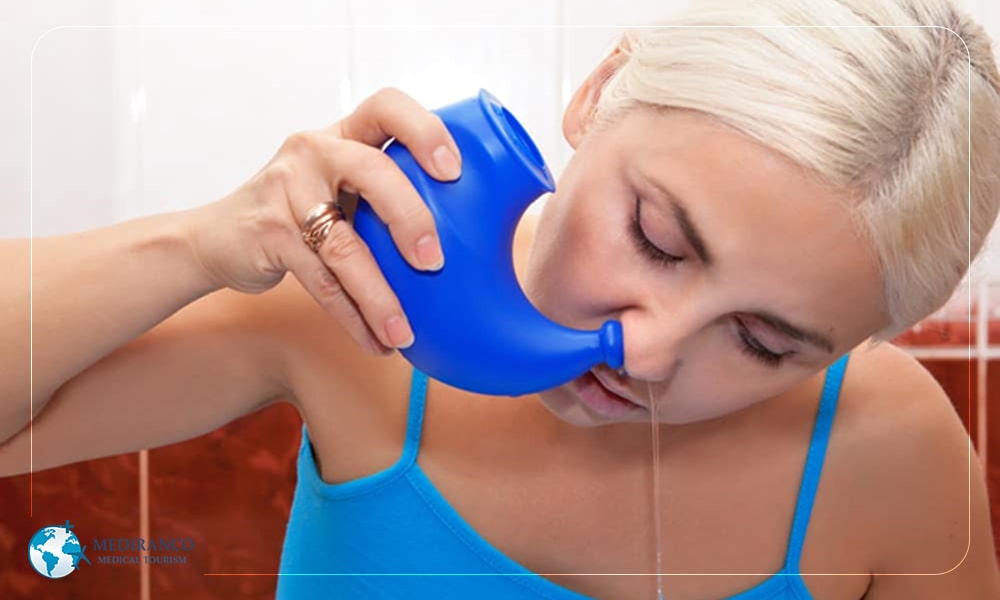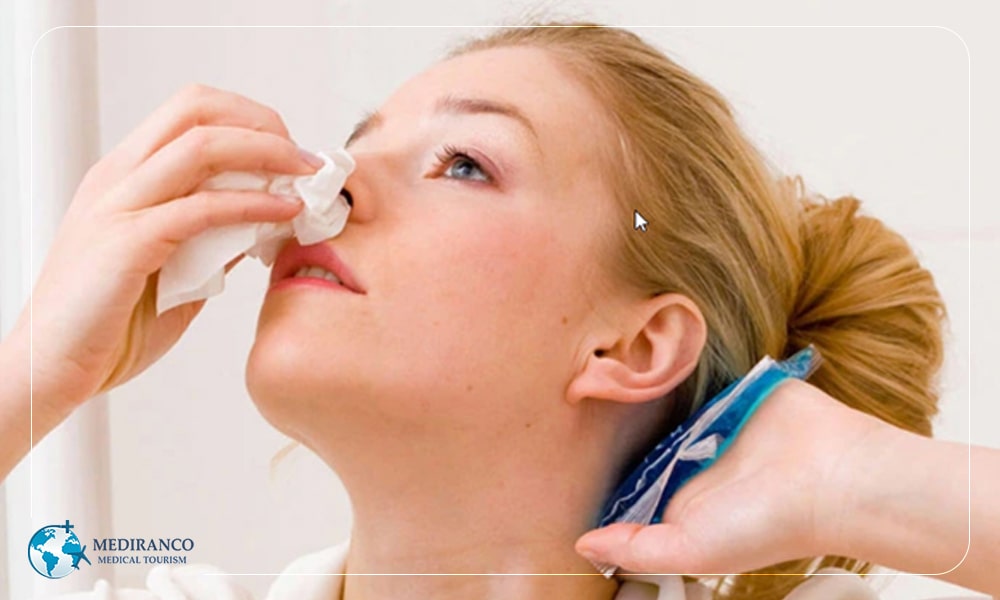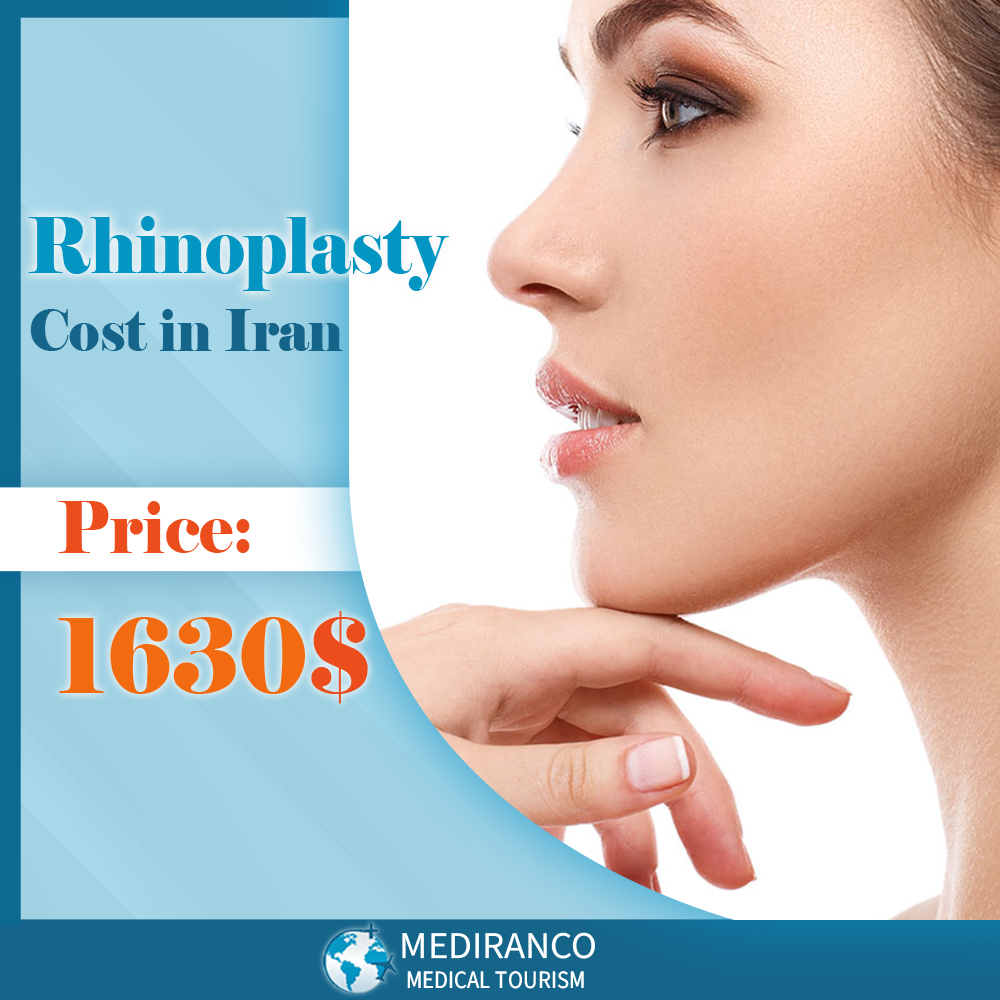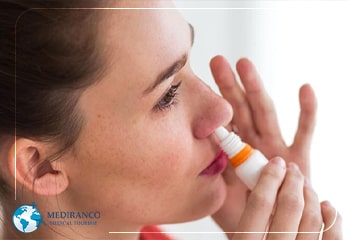Cleaning nose after rhinoplasty: Recovering from rhinoplasty, a transformative cosmetic procedure for the nose, requires careful attention and adherence to post-operative guidelines. Amidst the recovery process, one common question arises: Can I clean my nose? In this blog post, we will provide essential insights and guidelines on nose cleaning during rhinoplasty recovery.
Proper care and hygiene are vital for a successful rhinoplasty recovery. Understanding the do’s and don’ts of nose cleaning is crucial to promote healing and maximize long-term results. In this concise guide, we will address concerns related to nose cleaning during rhinoplasty recovery, including the importance of following your surgeon’s instructions and recommended techniques for gentle and effective cleansing.
Please note that the information provided here serves as general educational content. For personalized instructions and guidance tailored to your specific rhinoplasty procedure and healing process, consult directly with your surgeon at Mediranco. Let’s explore the topic of cleaning your nose during rhinoplasty recovery and gain valuable insights for a smooth and successful recovery journey.
Table of Contents
ToggleIn this article we will discuss:
- The Importance of Proper Nasal Hygiene During Rhinoplasty Recovery
- Understanding the Guidelines: Your Surgeon’s Instructions for Nose Cleaning
- Gentle Techniques for Cleaning Your Nose After Rhinoplasty
- Common Mistakes to Avoid: Tips for Safe and Effective Nose Cleaning
The Importance of Proper Nasal Hygiene During Rhinoplasty Recovery

Maintaining proper nasal hygiene during the recovery period is crucial for a successful rhinoplasty outcome. This involves keeping the nasal area clean, free from bacteria, and promoting optimal healing. Proper nasal hygiene not only helps prevent infections but also supports the overall healing process, reduces discomfort, and minimizes the risk of complications.
After rhinoplasty, your nasal tissues are delicate and vulnerable to external factors. It is important to follow your surgeon’s instructions on how to care for your nose during the recovery period. They will provide specific guidelines tailored to your unique situation. Generally, these guidelines may include the use of saline nasal sprays or rinses to gently cleanse the nasal passages and reduce dryness.
By maintaining proper nasal hygiene, you can help keep the nasal area free from debris and bacteria, which can potentially lead to infections. Cleaning your nose as per your surgeon’s recommendations also helps remove excess mucus and promotes optimal breathing. Additionally, it can alleviate discomfort associated with congestion and swelling, providing a more comfortable recovery experience.
It is essential to understand that the nasal tissues are fragile during the recovery phase, so it is important to handle them with care. Follow the provided guidelines on how to clean your nose gently, avoiding any aggressive or forceful actions that may disrupt the healing process. By adhering to proper nasal hygiene practices, you are actively participating in your own recovery and ensuring the best possible outcome of your rhinoplasty procedure.
Remember, if you have any concerns or questions regarding nasal hygiene during your rhinoplasty recovery, it is important to reach out to us at Health tourism company, Mediranco. By prioritizing proper nasal hygiene, you are taking a proactive step towards achieving a successful rhinoplasty outcome.
Understanding the Guidelines: Your Surgeon’s Instructions for cleaning nose after rhinoplasty

During your rhinoplasty recovery, your surgeon will provide specific instructions on how to clean your nose safely and effectively. It is important to carefully follow these guidelines as they are tailored to your unique situation and will ensure optimal healing and results. Here are some common instructions your surgeon may provide regarding nose cleaning:
1. Timing:
Your surgeon will advise you on when to start cleaning your nose after the rhinoplasty procedure. It is typically recommended to wait until the initial healing phase has occurred, which can range from a few days to a week or more, depending on your individual case.
2. Cleaning Techniques:
Your surgeon will guide you on the proper techniques for cleaning your nose. This may involve the use of saline solution, which helps moisturize and cleanse the nasal passages. They may recommend using a nasal spray or a gentle squeeze bottle to apply the saline solution.
3. Frequency of cleaning nose after rhinoplasty:
Your surgeon will specify how often you should clean your nose. This can vary depending on your healing progress and individual needs. It is important to follow the recommended frequency to maintain nasal hygiene without overdoing it, as excessive cleaning can disrupt the healing process.
4. Gentle Approach when cleaning nose after rhinoplasty:
Your surgeon will emphasize the importance of being gentle when cleaning your nose. It is crucial to avoid any aggressive or forceful actions that may cause trauma to the nasal tissues. Instead, use a gentle stream of saline solution or follow the specific instructions provided by your surgeon.
5. Avoid Irritants:
Your surgeon may advise you to avoid irritants during the cleaning process. This can include avoiding scented or harsh cleansing products, as well as refraining from blowing your nose forcefully.
Remember, your surgeon’s instructions are personalized to your specific case and are designed to promote optimal healing and minimize the risk of complications. If you have any questions or concerns about the nose cleaning process, do not hesitate to reach out to us for clarification and guidance.
Gentle Techniques for Cleaning Nose After Rhinoplasty
Cleaning your nose after rhinoplasty requires a gentle and cautious approach to ensure the best healing outcomes. Your surgeon will provide specific instructions on the techniques you should follow. Here are some gentle techniques for cleaning your nose after rhinoplasty:
1. Saline Nasal Spray:
Your surgeon may recommend using a saline nasal spray to cleanse your nasal passages. This gentle solution helps moisturize the nasal tissues, alleviate dryness, and remove any residual debris. Follow the instructions provided by your surgeon on the frequency and technique of using the saline nasal spray.
2. Nasal Irrigation:
Nasal irrigation involves using a neti pot or a squeeze bottle to flush out the nasal passages with a saline solution. This technique helps remove excess mucus, reduce congestion, and keep the nasal passages clean. It is important to follow your surgeon’s instructions on how to perform nasal irrigation safely and effectively.
3. Soft Cotton Swabs:
In some cases, your surgeon may recommend using soft cotton swabs to clean the external areas around the nostrils. Gently moisten the cotton swab with saline solution and carefully clean the outer areas of your nose. Avoid inserting the cotton swab inside the nostrils or applying excessive pressure.
4. Gentle Blowing:
If your surgeon permits, gentle blowing of the nose can help clear out any residual mucus or debris. However, it is essential to be cautious and avoid blowing forcefully, as this can disrupt the healing process. Use a gentle and controlled technique, with one nostril closed, to expel any excess mucus.
Common Mistakes to Avoid: Tips for Safe and Effective Nose Cleaning after rhinoplasty
Proper nose cleaning is essential during the rhinoplasty recovery process, but it’s important to be aware of common mistakes to ensure safe and effective cleaning. Here are some tips to avoid common mistakes when cleaning your nose after rhinoplasty:
1. Avoid Vigorous Nose Blowing:
Blowing your nose forcefully can put excessive pressure on the healing nasal tissues and potentially lead to complications. Instead, use gentle blowing techniques with one nostril closed and avoid forcefully expelling mucus.
2. Do Not Insert Objects:
It is crucial to avoid inserting any objects, including cotton swabs, into your nostrils during nose cleaning. This can disrupt the delicate healing process and potentially cause damage. Stick to external cleaning techniques recommended by your surgeon.
3. Do Not Use Harsh Cleansers:
Avoid using harsh cleansers or soaps to clean the external areas around your nose. These products can irritate the healing tissues and delay the recovery process. Stick to mild, non-scented cleansers recommended by your surgeon.
4. Avoid Touching Your Nose:
Refrain from touching or picking at your nose unnecessarily. Touching your nose with unclean hands can introduce bacteria and increase the risk of infection. Gently clean the external areas of your nose without excessive rubbing or scratching.
5. Follow Instructions of cleaning nose after rhinoplasty:
The most important tip is to follow the specific instructions provided by your surgeon. They are aware of your unique case and can provide tailored advice for safe and effective nose cleaning during your rhinoplasty recovery.
By avoiding these common mistakes and adhering to the guidance of your surgeon, you can ensure safe and effective nose cleaning after rhinoplasty.

We At Mediranco, a health tourism company in Iran, provide a range of services to help you enhance your appearance and boost your self-confidence. Our prices for rhinoplasty, revision rhinoplasty , and septoplasty are competitive and affordable, rhinoplasty cost in Iran starts from $1630

